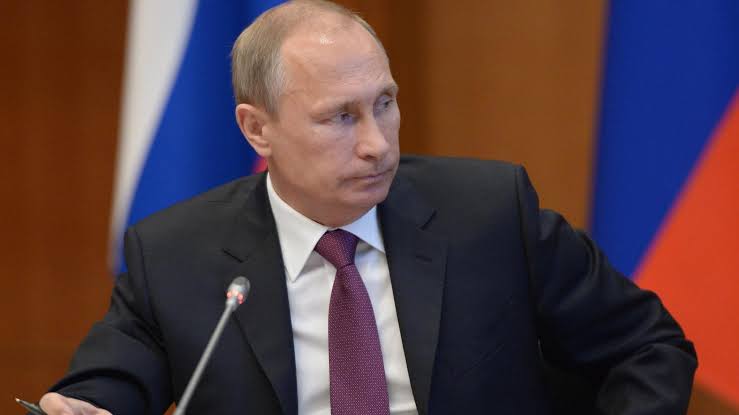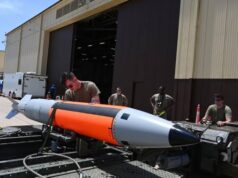India, China and the United Arab Emirates Won’t Back USA Against Russia

Russian President Vladimir Putin’s decision to conduct a special military operation to demilitarize and de-Nazify Ukraine was met with backlash from U.S. and its allies who in the first place had goaded on Ukraine right from the start.
At the U.N. Security Council gathering on Friday, France and the United Kingdom, along with the sole Eastern European representative Albania voted alongside their ally the U.S. to censure Russia, as did neutral fellow Europe’s Ireland and Norway, Africa’s Gabon, Ghana and Kenya along with Latin America’s Brazil and Mexico.
Russia without doubt vetoed the proposal. However India, China and UAE stood apart as Rocks. The World cannot be left to the mercy of just so called World Powers. Thus both India and China have shown to the rest of the World that they are quite independent minded, they do matter more than the Western Countries and they have to be taken very seriously.
India, China and the United Arab Emirates doubled down on their abstentions Sunday during another vote that ultimately passed despite Russia’s opposition on holding an emergency session of the U.N. General Assembly. The three nations opted to stay neutral and still pursue closer ties with Moscow.
Despite Washington’s efforts to court India in recent years as an effort to counter Beijing in the Asia-Pacific region, New Delhi took a neutral stance, a likely nod to its longstanding partnership. How can India forget the USA and UK attempt to arm twist India during the 1971 War. The USA had the gumption to send a Task Force ex its 7th fleet led by a nuclear powered aircraft carrier armed with nuclear weapons into the Bay of Bengal.
UK, a country the size of one of the Indian states too had the audacity to follow its master and had sent a Task Force into the Arabian Sea. It was Russia which had prevented any kind of intervention by sending its own task force. Though India would have taken them own without hesitation had either tried to act funny.
So India just cannot abandon Russia when it required help. Since last many years, America has been attempting to court India to join it in its geopolitical goals and that too as a junior ally against China. How can they even dream that India will become a camp follower. India even as a non nuclear country always charted its own foreign policy. Today India has emerged as a World Power.
India’s decision to acquire the S-400 surface-to-air missile system and other weapon systems and foster closer military ties with Russia has been a very soar point for the USA but they have had no way but to lump it. Though they have had the audacity to threaten India with their idiotic CAATSA. They forget that if BRICS becomes serious then Western Countries will just go out of competition.
Even the UAE has partnered with India and China In addition to seeking U.S. military support in the face of tense times with nearby Iran, Abu Dhabi has also eyed closer ties with Moscow in a number of sectors, including defence. The trend was on full display in recent UAE arms expos in which an array of Russian weapons were showcased. Parallel to this has been a greater U.S. hesitance to sell military equipment to the UAE due to concerns of civilian casualties in the ongoing war in Yemen and of Abu Dhabi’s growing relationship with Beijing.
Angered over China’s footprint in the UAE appeared to be a central factor in the stalling of the Pentagon’s plans to sell F-35 fighter jets to the Arab state. After months of uncertainty, Abu Dhabi informed Washington in December that it was suspending plans to acquire the advanced warplane.
On Wednesday, hours before Putin announced the beginning of military operations against Ukraine, UAE Foreign Minister Sheikh Abdullah bin Zayed Al Nahyan called for strengthening ties and deepening cooperation in a call with Russian counterpart Sergey Lavrov. Hours before Friday’s vote, Sheikh Abdullah announced he would visit Moscow on Monday to boost bilateral bonds.
Abdulkhaleq Abdulla, a professor of political science in the UAE, told Newsweek that the UAE’s decision to abstain from weighing in on Russia’s actions in Ukraine “is consistent with the new UAE foreign policy activism, which stems from being confident of its decisions and its approach to global and regional politics.”
“Confidence has a lot to do with this vote,” Abdulla said, “that finally we are independent enough, competent enough to take this kind of position, which is consistent with our own way of doing things and it does.”
“Maybe it doesn’t resonate too well in Washington,” he added, “but that’s the way things are going to be from now on.”
As the UAE’s top diplomat prepares to visit the Russian capital, Abdulla said that the UAE has been in touch with Washington including in recent calls between Sheikh Abdulla and U.S. Secretary of State Antony Blinken. The Emirati expert said he did not believe the trip “is going to be of any surprise to Washington” and even suggested there may be a peacekeeping capacity to the high-level trip.
“This visit is important and maybe there is a way for the UAE to do some kind of mediation between Moscow and Washington to ease tension,” Abdulla said. “That is primarily why he’s going.”
And while the UAE continues to consider the U.S. an important partner, he argued that the focus of this relationship has been tempered by Washington’s endeavour to shift foreign policy priorities from maintaining security in the Middle East to countering China in Asia, and more recently shore up efforts against Russia in Europe.
“I think it is dawning on us,” Abdulla said. “It is becoming like something on the near horizon, America is pulling back.”
In response to what he termed a “retreat” from the region, Abdulla said that the “UAE, like many countries in the region, are positioning themselves for this post-America, Middle East and post-Gulf Middle East, so I think this thinking is sinking in.”
As a result, Abdulla said that “Asia is definitely the future, and I think, if that is so, then Asia has become bigger and bigger in our strategic thinking.”
Coming to China, relations between Beijing and Washington have eroded in recent years, fewer areas of common ground have emerged. At the same time, Putin and Chinese President Xi Jinping have only fortified their “comprehensive strategic partnership of coordination for the new era,” an unprecedented bond between the two that was reinforced during their high-profile summit at the beginning of the Winter Olympic Games in Beijing earlier this month.
The two countries have often joined forces to wield their vetoes at the U.N. Security Council on issues proposed by the U.S. and, while Beijing opted to abstain on Friday, Chinese officials have also backed Moscow’s concerns regarding NATO expansion and U.S. military support for Ukraine as being central factors that have inflamed the crisis and ensuing war.
And while President Joe Biden’s administration has sought to prove inconsistencies between Beijing’s stated commitment to respect sovereignty and its tacit backing for Moscow’s intervention in Ukraine, the stark worsening of the U.S.-China relations on a range of issues, most critically Taiwan, has left little room for common ground between the two leading powers. On Saturday, local time, the U.S. Navy’s Arleigh Burke-class guided-missile destroyer USS Ralph Johnson transited the Taiwan strait as part of a “routine operation” designed to challenge China’s claim to the waterway between the mainland and the self-ruling island Beijing considers a part of its territory.
The South China Sea Probing Initiative, a Chinese observer group that monitored and reported on the USS Ralph Johnson’s movements, said that, even as Washington sought to address an explosive situation in Europe, the U.S. has kept up challenges to China in the Asia-Pacific.
“Based on our observations in the recent two months, the U.S. military presence and activities around China have not weakened, but have continued to increase,” the South China Sea Probing Initiative told Newsweek. “We agree that the United States still wants to focus its Indo-Pacific strategy while dealing with the crisis in Ukraine.”
The Chinese monitor added that Washington’s approach to Taiwan had influenced Beijing’s stance in Europe.




